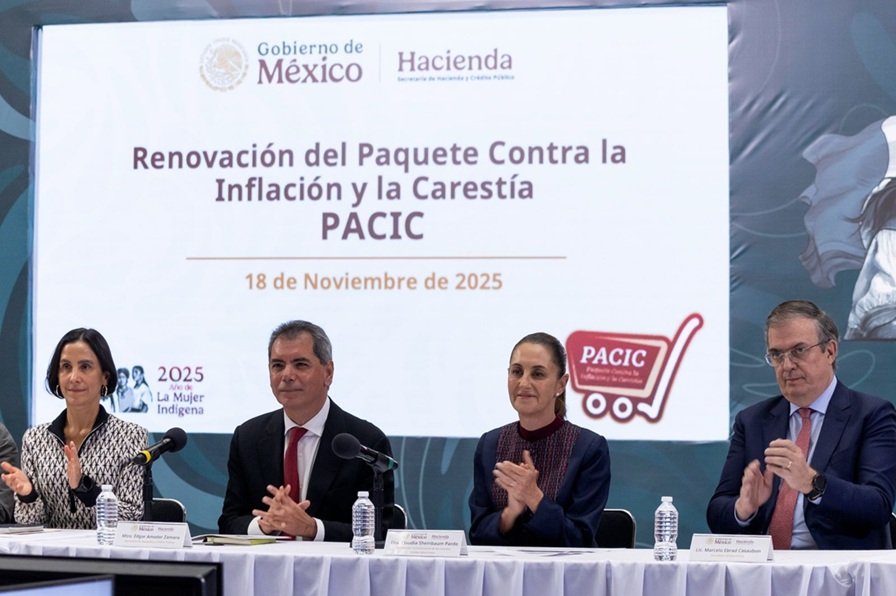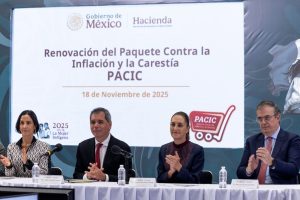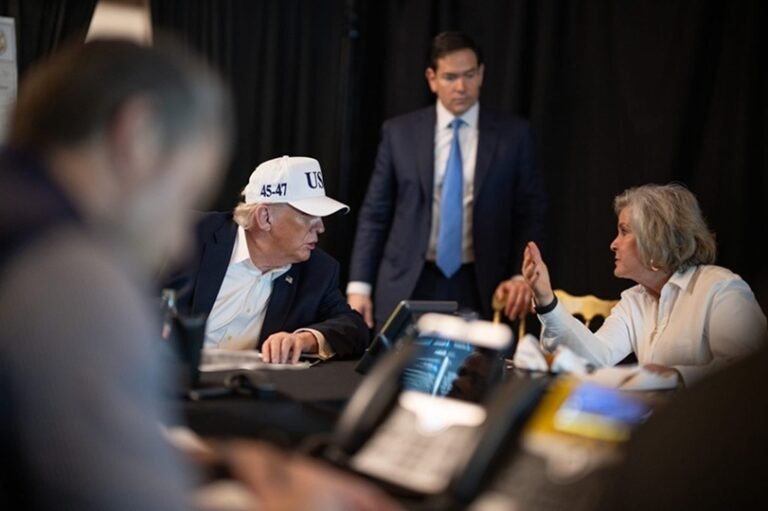
Sheinbaum and Business Leaders Renew Anti-Inflation Agreement to Maintain Basic Basket Price for Six Months
Share your love
 -Editorial
-Editorial
President Claudia Sheinbaum and representatives from major retailers and food producers signed a renewed version of the Paquete Contra la Inflación y la Carestía (Pacic) on Tuesday, extending the agreement for another six months to keep the cost of the country’s 24-item basic food basket fixed at 910 pesos.
The administration said the renewal is intended to help stabilize household expenses amid ongoing efforts to contain inflation. The agreement brings together 20 producing companies and 12 national retail chains that have committed to maintaining current prices through at least mid-2026.
Speaking at the Treasury Room in the National Palace, Sheinbaum said maintaining a stable basic basket while continuing to increase the minimum wage above inflation remains a priority for her administration. She cited government data indicating that the minimum wage has risen 125 percent in real terms since 2018. According to the president, wage gains coupled with price stability in essential goods contribute to poverty reduction and stronger household spending power. She also thanked business leaders for participating in what she described as a collaborative effort between the public and private sectors.
Finance Secretary Édgar Amador Zamora outlined the economic impact of the program, noting that Pacic’s price containment measures have helped moderate inflation. He said inflation in the first 10 months of 2025 was at its lowest level since 2022, when the agreement was first established. Zamora added that the average price of the basic basket, according to weekly monitoring by the consumer protection agency Profeco, fell from 886.50 pesos in November 2014 to 845 pesos in 2025 — a 4.7 percent decline. Maintaining the 910-peso cap for the current Pacic package represents a real reduction of at least 3.4 percent, he said.
Business leaders also expressed support for the agreement. Francisco Cervantes Díaz, president of the Consejo Coordinador Empresarial, said the renewal reinforces the private sector’s social responsibility and reflects the administration’s interest in protecting household budgets. He emphasized that cooperation and dialogue between government and industry remain central to achieving what he called “shared prosperity.”
A wide range of high-level government officials attended the signing, including the secretaries of Economy, Energy, Agriculture, Infrastructure and Communications, as well as the heads of the Tax Administration Service, the National Customs Agency, the Federal Commission for Protection Against Health Risks, and the Federal Consumer Prosecutor’s Office. Directors from state-owned enterprises Petróleos Mexicanos (Pemex) and the Federal Electricity Commission (CFE) were also present.
Representatives from numerous companies participated in the event, including ANTAD, Grupo Mar, SUPERISSSTE, Bimbo, Walmart, Pilgrim’s, Soriana, Ragasa, Chedraui, Grupo Pinsa, La Comer, Sukarne, Casa Ley, Sigma, Smart, San Juan, Súper Akí, La Moderna, Bafar, HEB, Opormex, Súper Kompras, Minsa, Calimax, Grupo Porres, Alpura, Verde Valle, Schettino, Bachoco, Maseca, Kimberly Clark, Lala and Merza.
Government officials said the Pacic extension is part of a broader economic strategy aimed at keeping essential goods accessible while supporting investment, employment, and consumer confidence going into 2026.



